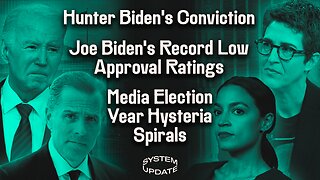Spiritual Gifts #5 - The Gift of Prophesy
Spiritual Gifts #5
The Gift of Prophesy
Text: 1 Corinthians 14:1, 39-40
Prophecy – Is when a believer using human words or language speaks something the Holy Spirit has revealed, most often in a spontaneous message to others.
A revelation of a portion of God’s message to other people spoken by a believer.
Prophesy is not anointed teaching, or anointed preaching. A teacher or preacher may prophesy, but the Greek wording through the whole of the NT has given each of these their own definition.
1Co 14:26 Paul clearly makes a distinction between a teaching and a revelation. A teaching is based on a Biblical text, while revelation is the basis for prophecy.
1Co 14:29-30 This is clearly saying that prophesy is based on revelation from the Holy Spirit.
In Eph.4:11 “And He (Jesus) gave some to be apostles, some prophets, some evangelists, and some pastors and teachers,…”
Paul clearly makes a distinction between these individual gifts of ministry.
A major point with the operation of prophesy today is we can’t judge it with the same standards of the O.T. In the OT if they weren’t 100% accurate, they were a false prophet and were to be put to death.
When you examine the way the spiritual gift of prophecy operates in the NT, we see that it is of a lesser authority than OT prophecy.
With that comes the possibility of human error.
1Cor.13:9 “For we know in part and we prophesy in part.”
No one sees with 100% accuracy. Prophecy is almost always a mixture of divine revelation, and human interpretation, and human application.
This is why Paul says to assess, weigh, or judge a prophetic word to see if it lines up with the Word of God.
1Co 14:29 Let two or three prophets speak, and let the others judge.
When a person gives a prophetic word, it doesn’t make them a prophet.
In Eph.4, we have a list of gifts Jesus gave to the church to equip the saints for ministry. They are ministry positions in the church. So the person who operates in the office of a prophet, is different than someone who gives a prophetic word.
With every prophecy there are 3 elements in play.
1. The revelation itself. This is TOTALLY from God.
2. The interpretation of what the Holy Spirit said to the person prophesying. The attempt to understand it’s meaning.
3. The application of the interpretation from the person speaking.
In Acts 21:10, The Holy Spirit showed Agabus something, so he took Paul’s belt and wrapped it around his hands and feet saying the Spirit showed him that Paul going to Jerusalem was going to be captured and bound. He took this revelation to mean Paul shouldn’t go.
But Paul said, no, the Holy Spirit has already let Paul know this, and he was instructed to go. Agabus miss-interpreted the prophetic message.
Some prophecy can include some for telling of the future. In Acts 11, Agabus told them there was going to be a great famine throughout the world.
But I find most prophecy is a forth telling of a message from God rather than a prediction of future events. A message to encourage, to remind us of His presence, power, and activity.
So with the possibility of human error involved with spiritual gifts, shouldn’t we limit or stop this in public gatherings? Paul says just the opposite.
What does the NT say to do if the prophecy seems to be off, or wrong?
1Th 5:20 Do not despise prophecies.
Don’t stop, and don’t just believe every word but judge, weigh, test them.
We are instructed to judge every word in light of God’s written Word.
A fresh revealed word from God will NEVER go against His written Word.
So we judge a prophetic word by the Word.
We also do this with preaching and teaching.
If I am preaching or teaching, and my message is sincere, but because of my interpretation, I have taught or preached different then the Word, we let the Word of God correct us.
But we don’t stop teaching and preaching.
This miss-use of spiritual gifts can cause one to just simply put it on a shelf and ignore God’s divine intention for Him to edify the church through me with His gifts.
Out of my own area of lack of understanding, fear, or maybe a desire to maintain my comfort zone I can un-intentionally say to God, “thanks, but no thanks.”
1Cor.14:1 “… desire spiritual gifts, but especially that you may prophesy.”
1Co 14:39 “Therefore, brethren, desire earnestly to prophesy, and do not forbid to speak with tongues.”
Who said this? Who did He say it to? SO???
What is my responsibility to God?
-
 35:22
35:22
Gary Wayne Bible Teaching
15 days agoWhat do I Choose to Remember?
761 -
 1:17:22
1:17:22
Kim Iversen
2 hours agoTit For Tat: Hunter's Political Token Conviction | Israel “It Depends On The Interpretation" Re: Ceasefire Deal
12.4K13 -
 LIVE
LIVE
Laura Loomer
3 hours agoEP52: THE GREAT REPLACEMENT: Trump and Biden Spar Over Border Policies Ahead of First Presidential Debate
1,623 watching -
 1:29:32
1:29:32
Glenn Greenwald
4 hours agoHunter Biden's Conviction Proves Media’s 2020 "Disinfo" Campaign; Joe Biden's Approval Ratings at Record Low After Trump Verdict; Liberals Embrace Prison Fantasies to Warn of Trump’s Dangers | SYSTEM UPDATE #281
37.4K56 -
 58:47
58:47
Edge of Wonder
3 hours agoThe Art of Counterfeiting Currency: CIA, China & Iran Sponsored Fake Money?
17.2K6 -
 2:23:58
2:23:58
WeAreChange
4 hours agoTIM's ON THE LIST! Ukraine's New American Target Lists Surface!
26.9K69 -
 2:04:25
2:04:25
The Quartering
5 hours agoAmerican Flags Banned In Gym, Hot Dog Champion Gets Woke, Based NBA Coach & Woke Gaming Meltdown
44.8K7 -
 1:18:21
1:18:21
Redacted News
7 hours agoRussia LAUNCHES Nuclear War Game Exercises on U.S. Doorstep, Hunter found guilty | Redacted Live
116K353 -
 2:02:37
2:02:37
Revenge of the Cis
6 hours agoEpisode 1356: The House Always Wins
65.2K12 -
 1:02:33
1:02:33
In The Litter Box w/ Jewels & Catturd
1 day agoDems Crash & Burn | In the Litter Box w/ Jewels & Catturd - Ep. 584 - 6/11/2024
88.4K35